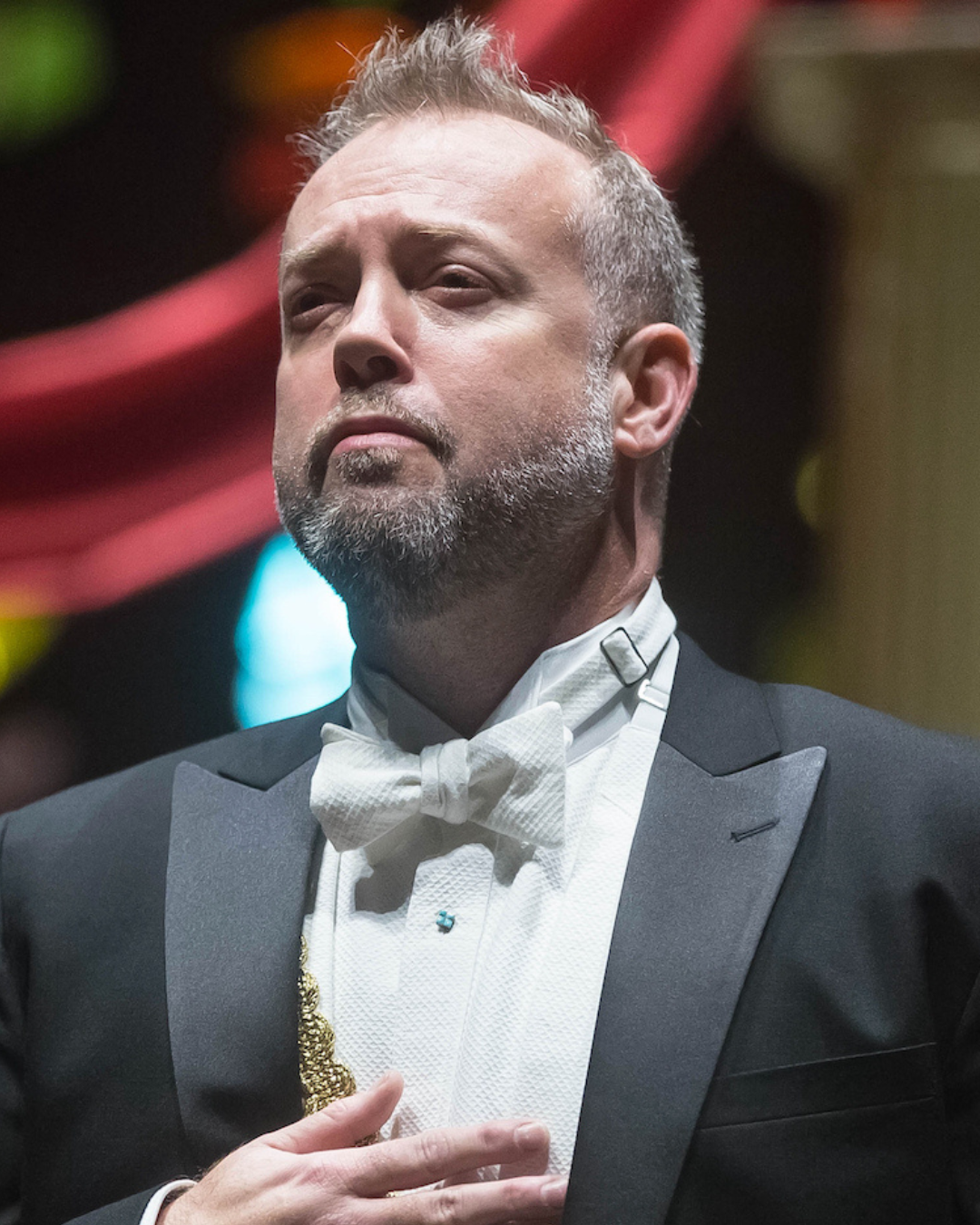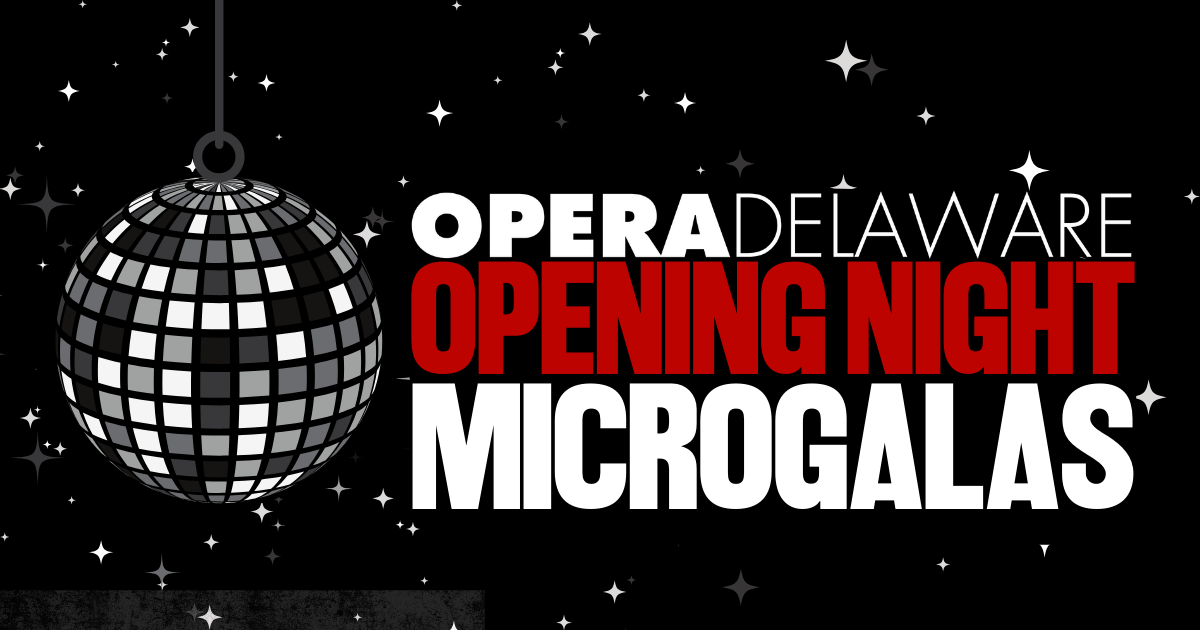Puccini’s Tosca
This production has closed.






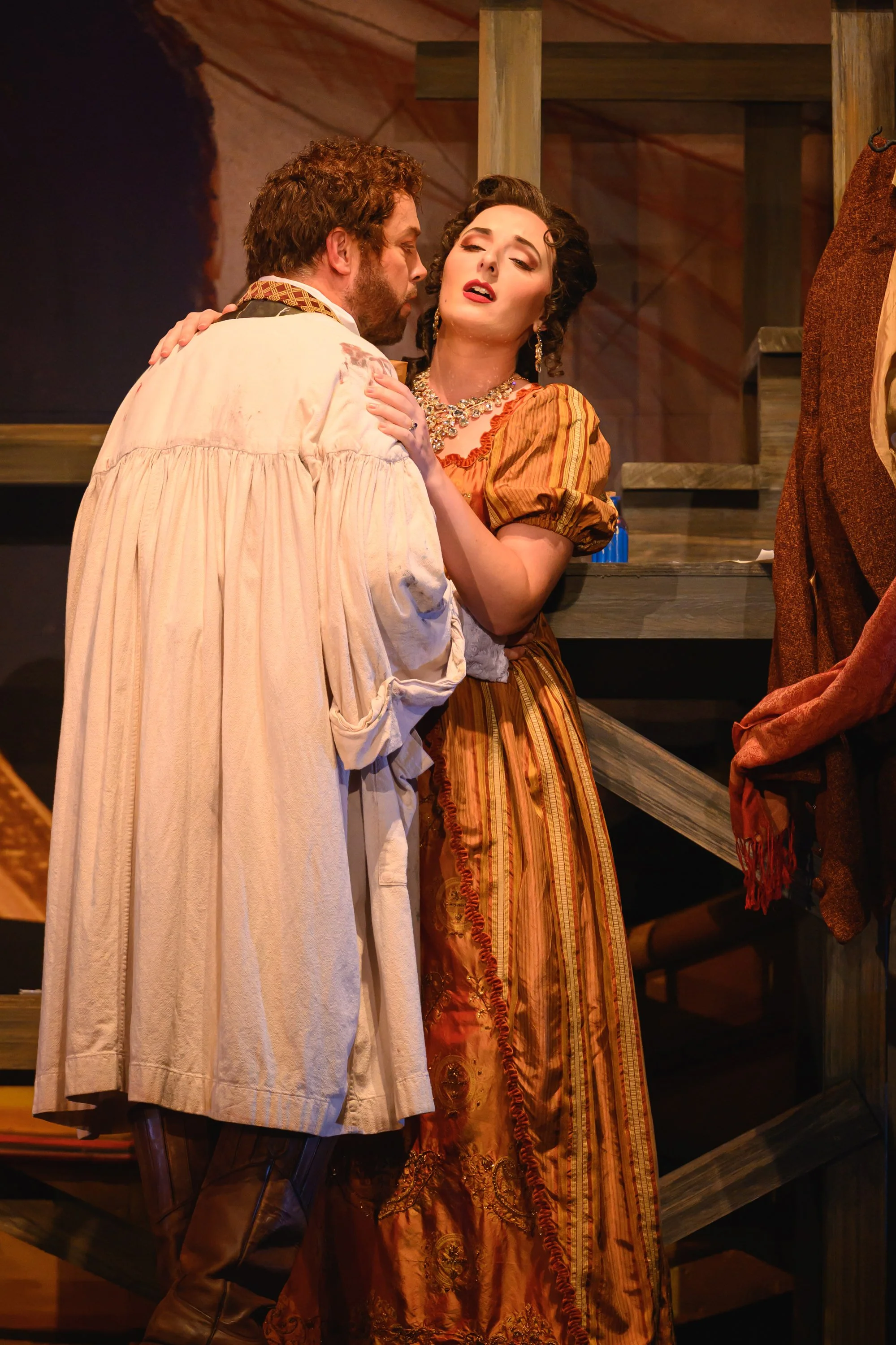

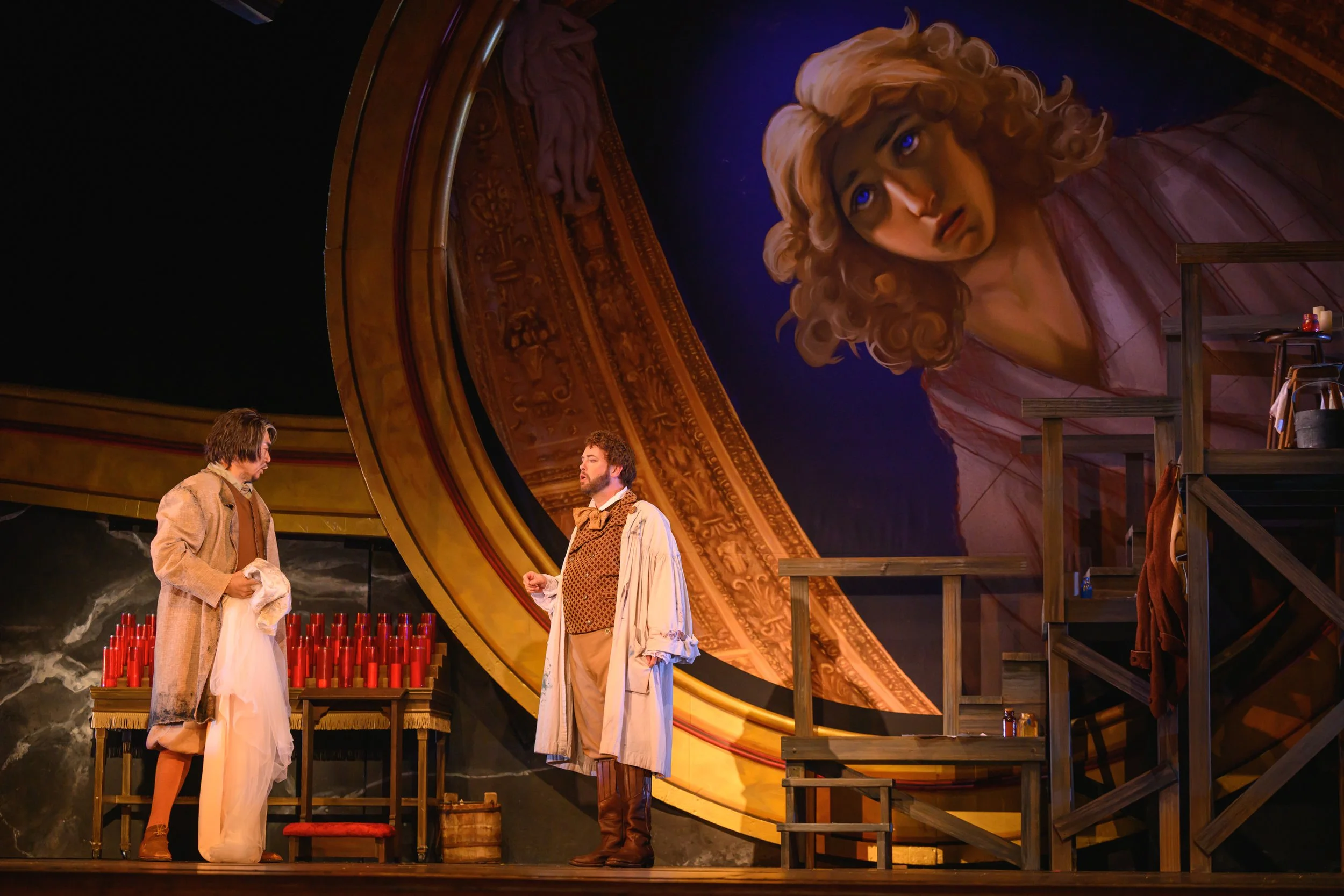


















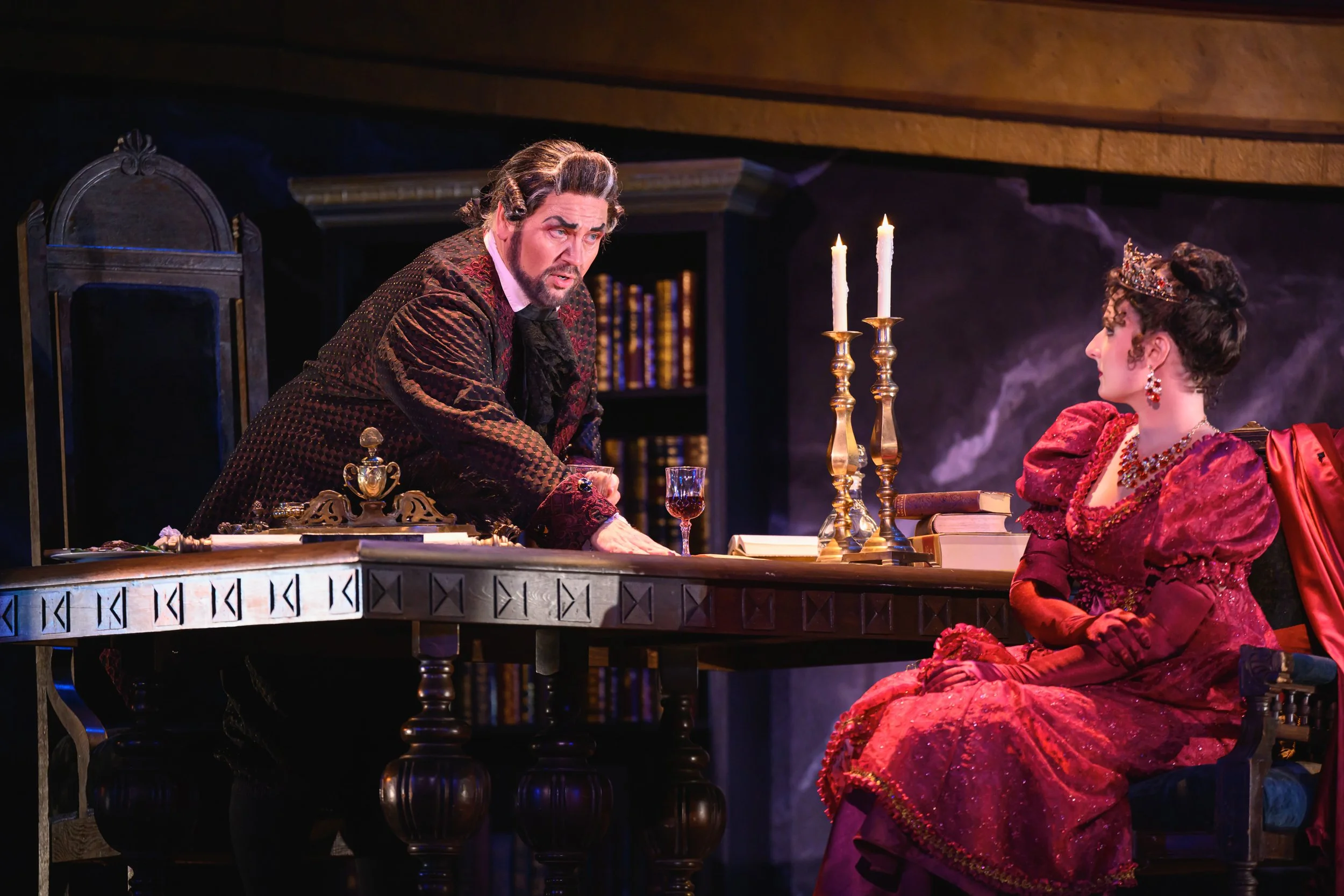



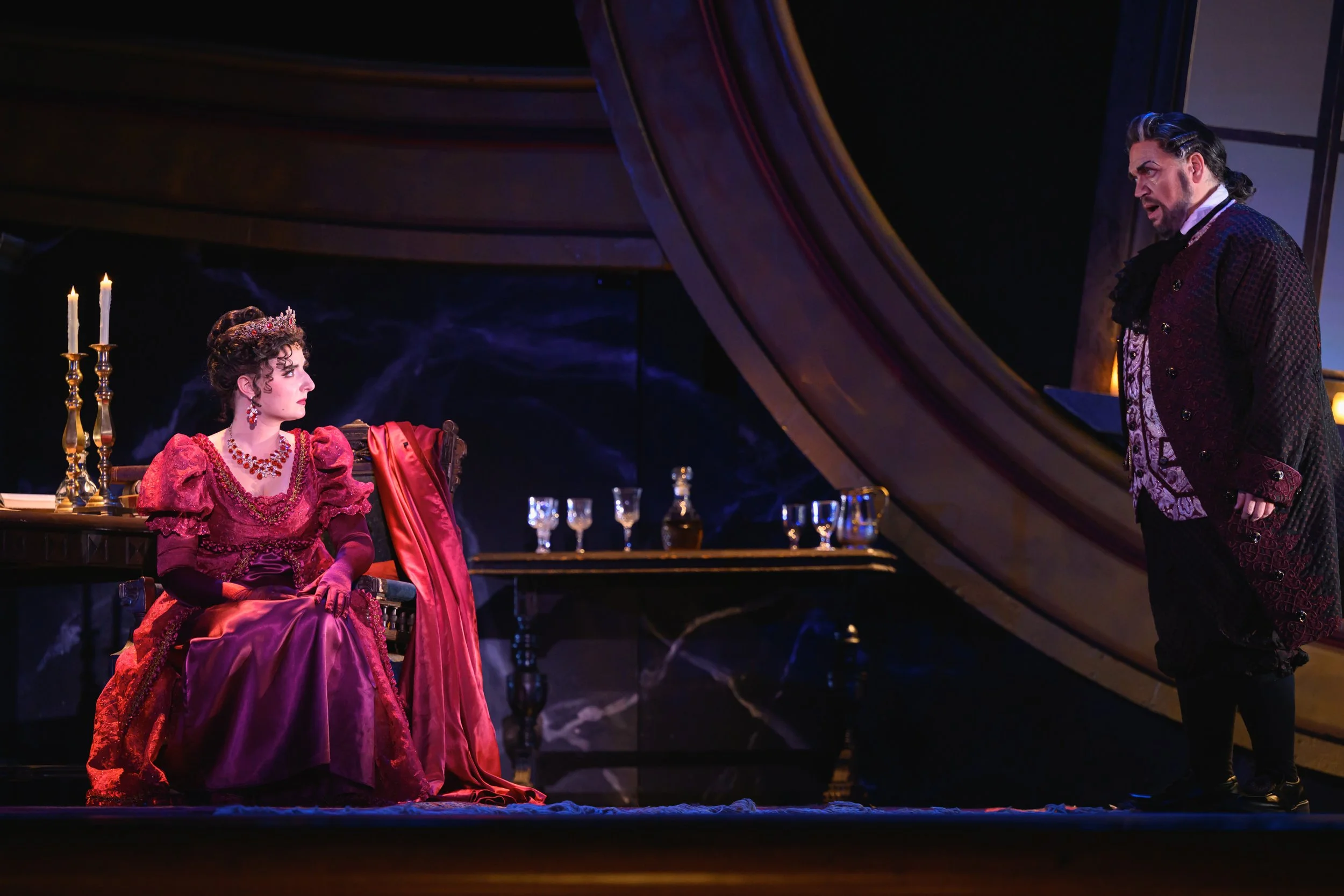





























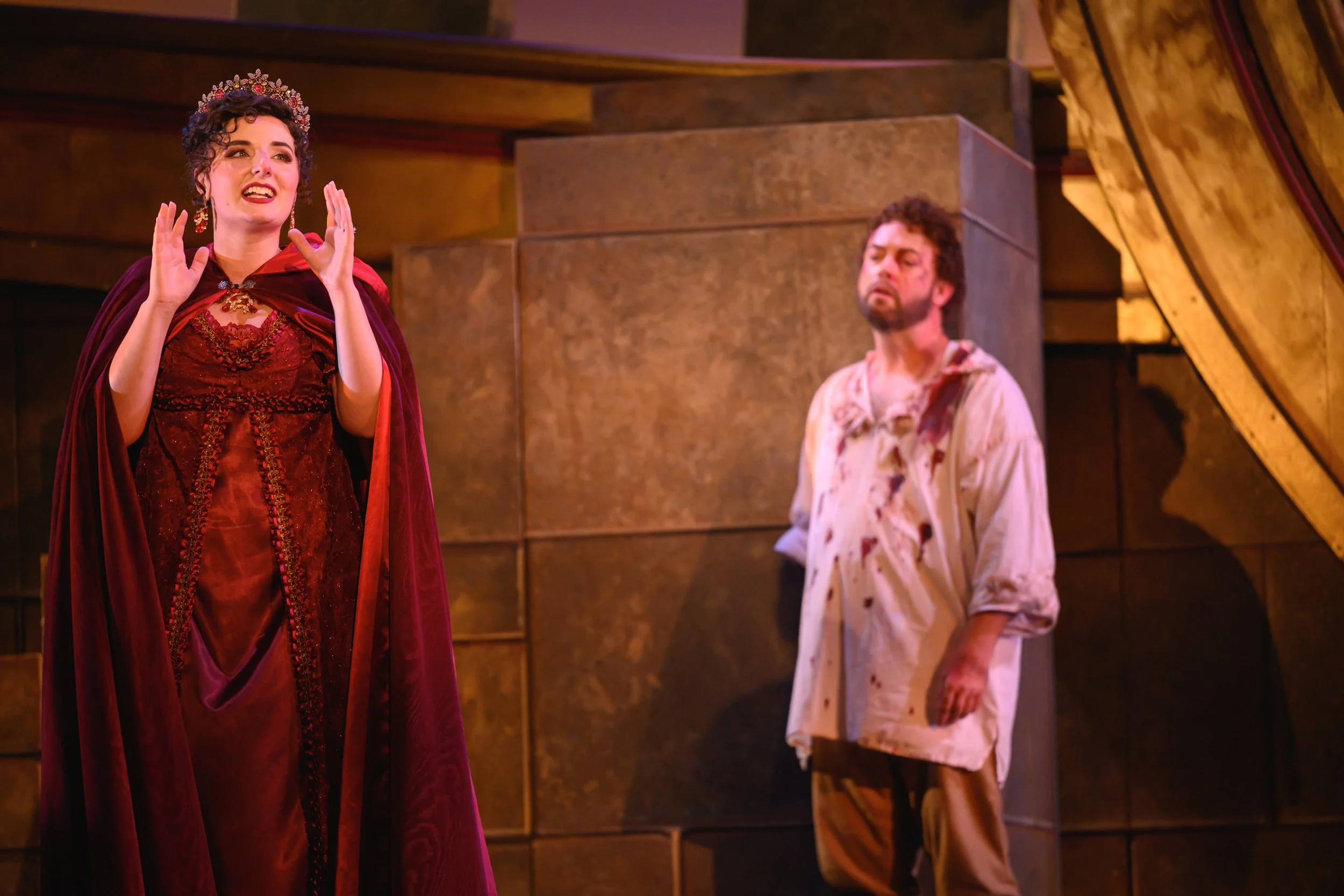
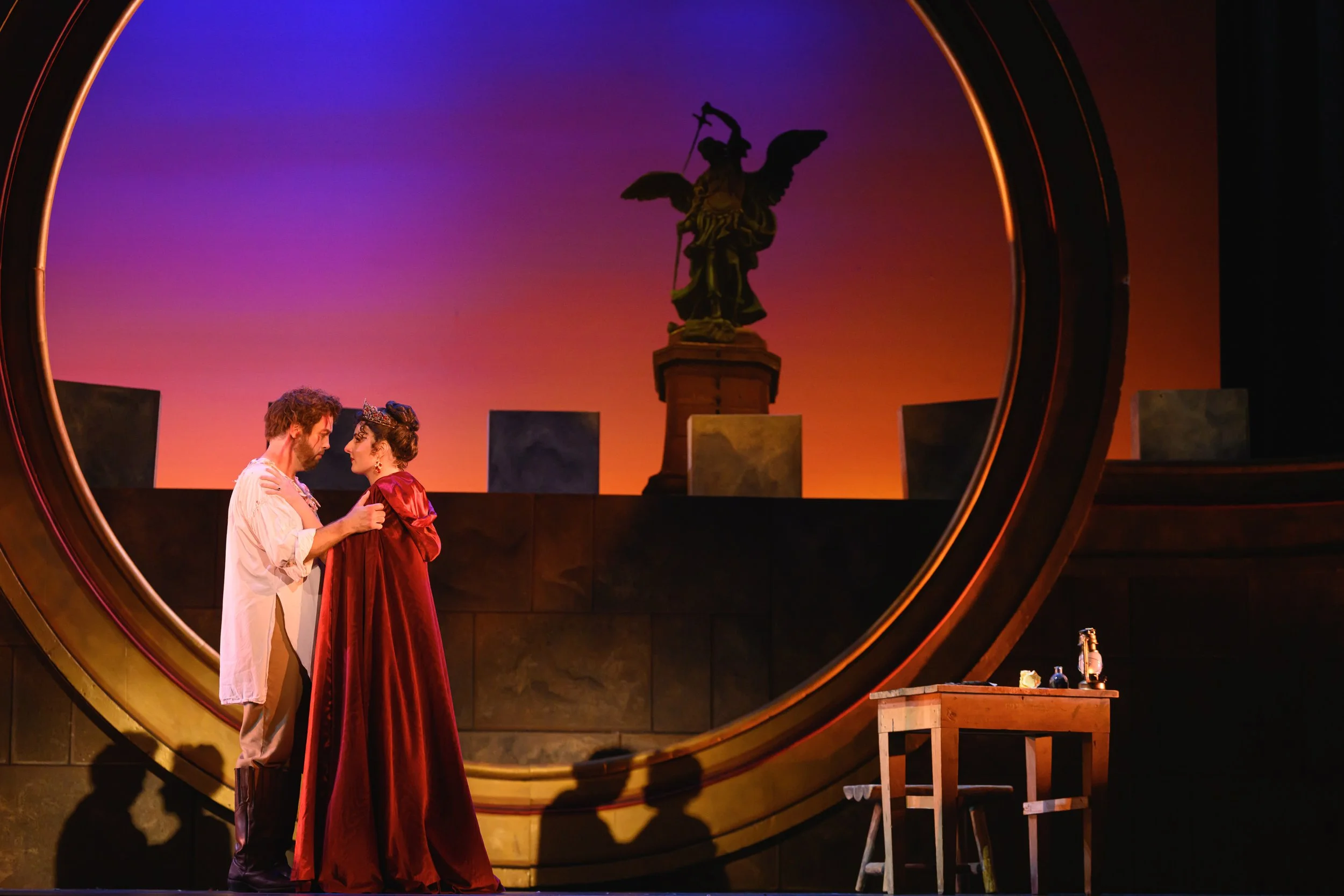
Prepare for an unforgettable night at the opera as Tosca storms the stage of The Grand Opera House with passion, power, and Puccini’s heartstopping music.
Set against the backdrop of political unrest in 1800s Rome, Tosca is a white-hot thriller of love, betrayal, and resistance. When the celebrated singer Floria Tosca finds herself ensnared in the cruel schemes of the corrupt chief of police, Baron Scarpia, she is forced to make an impossible choice—to save her beloved Mario Cavaradossi or to maintain her integrity. What follows is a riveting, edge-of-your-seat descent into sacrifice and vengeance, culminating in one of the most unforgettable endings in operatic history.
With sweeping verismo melodies and a lush, full orchestra, Puccini’s Tosca delivers some of opera’s most iconic moments—from the aching beauty of “Vissi d’arte” to the soaring cries of doomed love. Every note is alive with intensity, every phrase charged with truth.
At the heart of this opera is Tosca herself—bold, brilliant, and unyielding. She is not a passive heroine, but a woman who dares to fight back in a world ruled by men. Her strength and fearlessness speak across centuries, reminding us of the timeless power of a single voice raised against injustice.
Dive Deeper…
Read star Emily Margevich’s blog about becoming Tosca and catch up on virtual lectures with scholar Dr. Aaron Ziegel below.
Synopsis (expand to read)
-
Act I – The Church of Sant’Andrea della Valle
Rome, June 1800. Cesare Angelotti, a political prisoner, has escaped from Castel Sant’Angelo and seeks refuge in his family’s chapel. He is discovered by the painter Mario Cavaradossi, who is currently painting a fresco of Mary Magadalene. This fresco looks eerily like Angelotti’s sister who has come to the church to pray, and, later, revealed to also help in her brother’s escape. With this discovery, Cavaradossi doesn’t hesitate to help Angelotti, a fellow revolutionary. But when the singer Floria Tosca, Cavaradossi’s lover, arrives, she becomes suspicious and jealous, realizing the fresco resembles Angelotti’s sister. Cavaradossi reassures her of his devotion and shows her out so he’s free to help Angelotti. Suddenly, cannon fire announces that Angelotti’s escape has been discovered. Cavaradossi hurries Angelotti away to his villa.
The sacristan and the choir return to celebrate news of Napoleon’s apparent defeat, but their joy is cut short by the arrival of Baron Scarpia, the feared and corrupt chief of police. Searching for Angelotti, Scarpia finds evidence that Cavaradossi has aided him. Tosca reenters, still troubled by jealousy, and Scarpia slyly plays on her doubts, planting the idea that Cavaradossi is hiding another woman. Enraged and desperate, Tosca leaves, trailed by Scarpia’s men. Scarpia then declares his dual intentions: to capture Angelotti and to possess Tosca.
-
Act II – Scarpia’s Apartments in the Palazzo Farnese
That evening, Scarpia dines alone while music drifts up from the palace below. His lieutenant reports that Angelotti is still at large, but Cavaradossi has been arrested. Brought before Scarpia, Cavaradossi defiantly denies knowing Angelotti’s whereabouts. Scarpia orders him tortured. Tosca, summoned by Scarpia, hears her lover’s cries of pain and cannot bear it—she reveals Angelotti’s hiding place. Cavaradossi is dragged back in, bloodied, and furious at Tosca for betraying him.
News arrives that Napoleon has won a decisive victory at the Battle of Marengo, reigniting Cavaradossi’s hopes and defiance. Enraged, Scarpia orders his execution at dawn. Left alone with Tosca, he presents his cruel bargain: if she yields to him, Cavaradossi will be spared. Torn between love and horror, Tosca resists until, in desperation, she agrees. Scarpia arranges what he describes as a “mock” execution, instructing his men to fire blanks. When he moves to claim his prize, Tosca stabs him with a steak knife she took from his dinnerplate and kills him. About to leave the scene of the crime, Tosca, a woman of faith, turns back and performs a ritual of forgiveness by placing candles beside Scarpia’s body and laying a crucifix on his chest before slipping away.
-
Act III – The Ramparts of Castel Sant’Angelo
Just before dawn, Cavaradossi awaits execution, guarded by soldiers. He writes a farewell letter to Tosca, recalling their happiness together. In what he thinks are his last moments, he only thinks of her. Tosca arrives, radiant with hope, and tells him that she has killed Scarpia and that the firing squad will only pretend to shoot him. The lovers imagine a future of freedom and joy.
At dawn, the soldiers carry out the execution. Cavaradossi falls, and Tosca rushes to him—only to realize with horror that the bullets were real. Scarpia has deceived her even in death. With soldiers closing in, Tosca makes her final choice: she leaps from the battlements, crying that she will meet Scarpia before God’s judgment.




